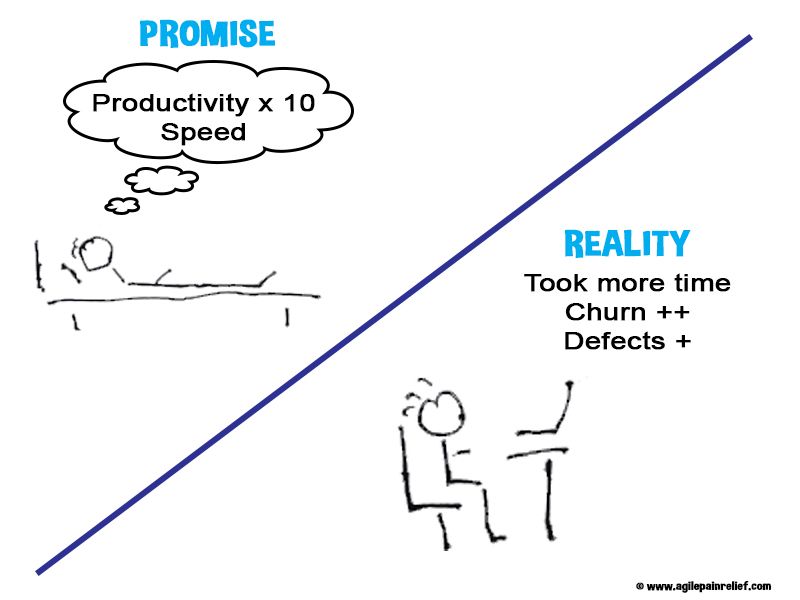Estimation
An estimate is a qualified guess to help people make a decision about doing work. In the Agile world, one approach to estimation has become prevalent: the combination of Planning Poker and Story Points.
Story Points are past time, according to Ron Jeffries and Chet Hendrickson, the people who created them. Hendrickson has said, “As one of the folks that sort of started all of this, let’s say that it was the best we could think of in 1996, by 2001 we had discovered better ideas, and by now it should have been kicked to the curb long ago.”
The benefit of Story Points was the speed at which the numbers could be generated, but among their many faults was that they fail to make clear the uncertainty, they’re often used as a commitment and, worse, for comparison of teams.
Commonly used estimation techniques:
- Story Points and Planning Poker
- Bucketing, which is where a team sort a large number of Product Backlog Items into clusters using numbers that look like story points - Good for sorting through a large list of items.
- T-Shirt Sizing, where the story point numbers are replaced by Small, Medium and Large. Anything classified as Medium or larger needs to be split before being worked on in a Sprint.
- Simply count the number of product backlog items. If the Product Backlog contains a number of large items, notice on average how many small items they decompose to. Use that as a rough multiplier to go from large to small.
- Abandon estimation and focus on Forecasting instead.
Agile Pain Relief Blog Entries
Resource Links
- Agile Alliance Report - Estimates are Terrible
- Additional Benefits of Estimation
- Bucketing stories for quick estimation
- Estimates vs Actuals
- Estimating Complexity
- How to Estimate a Product Backlog
- Delusions of Success: How Optimism Undermines Executives’ Decisions
- Planning Poker 101
- The Real Reason We Estimate
- Schedule Estimation and Uncertainty Surrounding the Cone of Uncertainty
- Slides on Estimation from Mike Cohn
- Story Points Revisited - Ron Jeffries
- What Are Story Points?
- What We Do and Don’t Know about Software Development Effort Estimation
- When I’ve Skipped Estimates
- Wideband Delphi
- You Don’t Need Story Points
CHALLENGES
Related Books
- Software Estimation withoutGuessing - George Dinwiddie
